Besides questionable effectiveness, herbal supplements aren’t safe for everyone
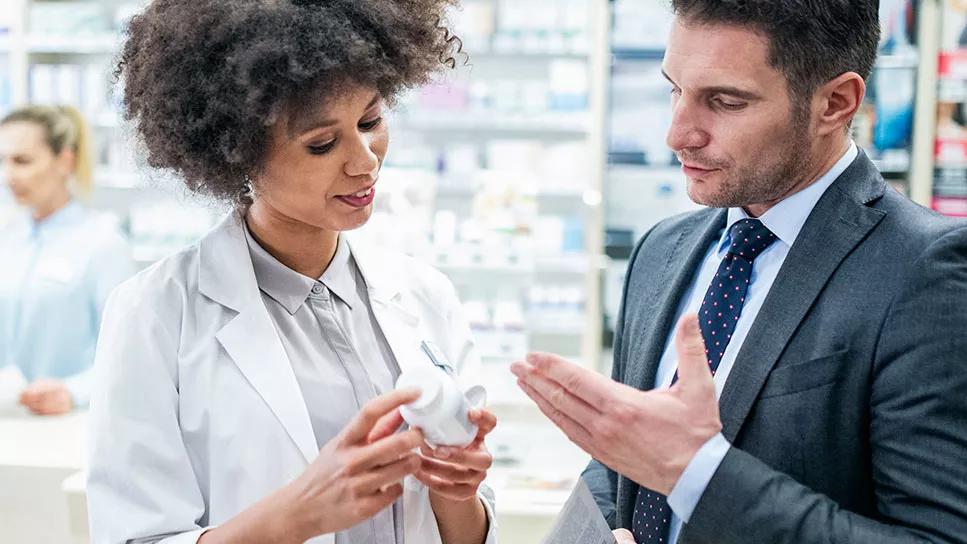
Numerous plants and herbs have been used for centuries for healing. And herbal supplements continue to be widely used in the United States. Research from the National Institutes of Health estimates people in the U.S. spend about $13 billion on natural product supplements in one year.
Cleveland Clinic is a non-profit academic medical center. Advertising on our site helps support our mission. We do not endorse non-Cleveland Clinic products or services. Policy
Certain herbs have been touted for all kinds of conditions. From anxiety-relieving effects and immune-boosting powers to keeping your heart healthy and zillions of other uses.
But it’s not as easy as opening a bottle and bringing on the purported good stuff.
Many herbs aren’t backed by strong scientific evidence showing they’re safe or effective in people. And some herbal remedies can interact badly with certain medications or have unintended consequences for people living with certain conditions.
“Herbal supplements aren’t regulated by the U.S. Food and Drug Administration (FDA) with the same standards as pharmaceutical drugs,” explains integrative medicine specialist Melissa Young, MD.
“In addition, if you're living with any health concerns or if you’re taking any medications, you’ll want to be especially careful about potential drug-herb interactions. I always advise talking with a healthcare provider before taking any kind of supplements, especially herbs.”
Dr. Young shares insight into some popular herbal supplements and their potential risks.
Herbal supplements are products derived from plants, including their oils, roots, leaves, seeds, berries or flowers. Many have been used for centuries and may have particular health benefits and healing properties. But it’s important to recognize that “natural” doesn’t always equate to safe or effective. More on that in a bit.
Herbal products come in many different forms. Some are meant to be ingested, while others are used on your skin. They take the shape of:
It’s also important to know that manufacturers of herbal products and other supplements aren’t required to prove that their products are either safe or effective before they’re put on the market.
In other words, a supplement or herb can hit the store shelves and be sold without proving it’s safe. Or that it’ll be beneficial.
The FDA does have the power to remove a product from the market if it’s shown to be dangerous. But the process can take years and is mostly self-monitored. Very few supplements have been taken off the market.
“It is important to choose companies that have independent testing done for product quality and purity,” Dr. Young advises. “Otherwise supplements may not have in it what is listed on the label and may come with contaminants like pesticides and heavy metals.”
There are thousands of herbal supplements out there. The following are some of the most common, along with the conditions people use the supplement to help manage and some risks that have been identified with their use.
Note that the conditions people use these supplements for may not be backed by significant research in humans. And the risks noted here aren’t all-encompassing.
Always consult a healthcare provider before using herbal products. Many of these products can have serious interactions with heart medications, blood pressure medications, blood thinners and other medications. Many can also be dangerous for people who are pregnant or breastfeeding (chestfeeding). People taking medication or who are pregnant or breastfeeding should never take herbal supplements without a healthcare provider’s guidance.
Claims: Aloe is a plant that’s perhaps best known for relieving pain from sunburns and other burns. Some people use it topically for psoriasis, too. It’s also used internally (aka as a pill you swallow) to relieve digestive issues like constipation.
What the evidence says: Aloe supplements can have a laxative effect that can be severe. But aloe has been shown to be safe and effective when used topically for mild burns. There is some evidence that topical aloe may improve psoriasis and similar skin conditions.
Risks: Aloe supplements taken by mouth can decrease levels of potassium in your body, which can be dangerous.
Recommendation: Dr. Young doesn’t recommend using aloe supplements by mouth for constipation due to the risk of severe side effects. People who take diuretics or the heart medication digoxin should especially avoid aloe supplements.
There isn’t enough evidence to prove aloe will be effective for psoriasis, so Dr. Young discourages using it for that purpose, too.
Dr. Young does recommend considering aloe as a topical solution for burn relief. But don’t apply it to areas of open wounds. To use aloe topically for burn relief, consider keeping a potted aloe vera plant at home. To use the fresh plant, cut off a lower leaf, split lengthwise along its spine and rub the exposed gel onto your skin.
Claims: Homeopathic arnica is often used topically as a gel-like substance to treat muscle aches, sprains, strains and bruising. Some products also claim that when used internally, arnica supplements can have similar effects.
What the evidence says: Some studies show arnica has comparable activity compared to standard anti-inflammatories and may be effective for osteoarthritis and exercise-induced muscle pain.
Risks: Arnica supplements can be potentially toxic when ingested. Some homeopathic arnica compounds are diluted and don’t actually contain detectable amounts of plant substance.
Recommendation: Avoid taking arnica supplements internally, as they can be dangerous.
Arnica topical treatments are safe and may be effective to use. Consider using them topically for bruising, muscle aches and strains. But don’t apply them to open wounds.
Claims: Beta-carotene is a type of nutrient called a carotenoid. That means it’s a naturally occurring pigment in orange and yellow fruits and vegetables. It’s an antioxidant that people sometimes use as a supplement to fight damage to your body from free radicals.
What the evidence says: Beta-carotene supplements have been shown to have antioxidant properties. Most healthcare professionals recommend getting your nutrients from foods, rather than supplements when possible. That’s because foods come with the added benefits of other vitamins, minerals, fiber and more. Foods high in beta-carotene include sweet potatoes, carrots and butternut squash.
Risks: Studies have shown beta-carotene supplements are associated with an increased risk of lung cancer in people who smoke or who’ve been exposed to asbestos.
Recommendation: Dr. Young advises that people who smoke should avoid beta-carotene supplements.
Claims: Black cohosh is an herb that’s promoted as a supplement to reduce symptoms of menopause, like hot flashes and night sweats.
What the evidence says: Most research on black cohosh has been done on a single brand called Remifemin®.
The Natural Medicines Database states black cohosh is possibly effective. Several clinical trials using specific black cohosh preparations (such as Remifemin, and PhytoPharmica enzymatic therapy) have shown a modest reduction in menopausal symptoms. Research on the effects of other formulations is mixed.
Risks: Black cohosh may interact with other medications, like statins and other supplements. Known adverse effects include infrequent gastrointestinal discomfort, and rarely, dizziness, headache, nausea and vomiting.
There have been reports of liver damage, including elevated liver enzymes, liver failure and other liver injuries associated with black cohosh use. But there isn’t any evidence of a causal relationship to date. That’s to say, we don’t know for sure that black cohosh actually caused these conditions. It’s possible unknown contaminants in the herbal preparations or an herbal supplement mislabeled as black cohosh may have caused these liver issues.
There’s been controversy around using black cohosh for hot flashes in people with breast cancer, but current evidence doesn’t support the theory that black cohosh can worsen breast cancer or have negative effects on estrogen. People with breast cancer should speak with their healthcare provider about treatment options for hot flashes.
Recommendation: Most people can safely consider black cohosh for short-term use to help with symptoms of menopause.
Claims: Chamomile is often touted for its anxiety-relieving effects and for promoting sleepiness. Some people also use it to quell an upset stomach and use it topically for skin inflammation.
What the evidence says: Dr. Young says some studies show chamomile may be effective in reducing anxiety. But there’s little consistent data on chamomile’s effects on sleep or stomach issues. One study showed topical chamomile oils and gels may improve certain types of dermatitis, comparable to 1% hydrocortisone cream.
Risks: Chamomile is a member of the daisy family and can cause allergic reactions in people who are allergic to ragweed and similar plants.
Recommendation: Chamomile tea is considered safe for most people and may be effective for relieving stress and mild anxiety. People who have allergies to ragweed and similar plants should avoid it.
Claims: Echinacea, also called purple coneflower, is a popular remedy that some people believe can fight cold and flu symptoms.
What the evidence says: Some test tube studies have shown echinacea to have antiviral and antimicrobial activity. But research on its effects on the common cold is mixed. Some studies have shown that echinacea may be associated with a slight decrease in the length and severity of cold symptoms, but most research doesn’t support the claim that echinacea shortens the duration of the common cold.
Risks: Echinacea may be associated with allergic reactions and immune system stimulation.
Recommendation: Overall, echinacea is probably safe, but may not be effective for lessening cold and flu symptoms. People who live with autoimmune disease or who take immunosuppressant medications shouldn’t take echinacea. People with allergies to ragweed, daisies, marigolds and chrysanthemums are also advised to avoid it.
Claims: Ephedra (also called Ma-Huang) has been used in traditional Chinese medicine for thousands of years to treat coughs and bronchitis. It gained popularity in the United States for weight loss, energy and athletic performance.
What the evidence says: Ephedra has been linked to heart attacks, strokes, palpitations and death.
Recommendation: Avoid in all cases. Over-the-counter ephedra supplements were banned in the United States in 2004 because of its possible life-threatening effects.
Claims: Feverfew supplements are believed by some people to help prevent migraines.
What the evidence says: Research on its effectiveness has been mixed.
Risks: Side effects may include digestive disturbances, skin rash and mouth ulcers. It may interact with some medications, too, including blood thinners. It’s also has been shown to have uterine-stimulating effects, making it dangerous for people who are pregnant.
Recommendation: Dr. Young suggests that feverfew may be considered for migraine prevention in some people, but it may not be effective. People who are pregnant, who take blood thinners or who are allergic to ragweed and related plants should avoid feverfew.
Claims: Some people turn to garlic supplements to lower cholesterol and treat colds and other infections
What the evidence says: Garlic is generally safe when eaten as a food. But as a supplement, its effects are more mixed.
Dr. Young says garlic supplements have been shown in lab studies to reduce oxidative stress. Garlic’s effect on cholesterol is modest at best. But it may be effective for people who have slightly increased cholesterol levels.
Certain types of garlic, like Kyolic garlic, have shown promise in improving heart health and improving the diversity of beneficial bacteria in your gut microbiome.
Studies are mixed on whether garlic supplements help in treating or preventing the common cold.
There’s evidence showing links between higher intakes of vegetables in the garlic family (like garlic, onions, shallots, chives and leeks) and lower risks of certain cancers, especially gastrointestinal cancers. These are observational studies that can show a possible connection between these foods and cancers. It hasn’t been definitively proven that foods in the garlic family actually prevent cancer.
Risks: Garlic supplements may cause bad breath, body odor and heartburn.
They may increase bleeding risk so avoid with blood thinners and should be discontinued at least 14 days before surgery.
Garlic supplements may interfere with the effectiveness of some medications, including saquinavir, a medication used to treat HIV.
Recommendation: Eat garlic as a food, rather than as a supplement, for best effects. Some people may consider garlic supplements for mild blood pressure and cholesterol elevation.
Claims: Ginger is a common home remedy for nausea, vomiting and motion sickness. Some people also believe it can be used to lower inflammation.
What the evidence says: Studies show ginger may be helpful for mild nausea and vomiting during pregnancy (aka morning sickness). Studies also show ginger can be effective in decreasing nausea and vomiting after surgery.
Research on ginger’s effectiveness on motion sickness and knee osteoarthritis is mixed.
Risks: Ginger may increase your risk of bleeding in higher doses. It can cause heartburn, abdominal discomfort, mouth and throat irritation.
Recommendation: When eaten as a food, ginger is considered safe. Ginger supplements may be safe and effective for morning sickness, nausea, motion sickness, and mild muscle aches and pains. Ginger supplements should be avoided in people who take blood-thinning medication. People who have acid reflux (GERD) should be cautious about taking ginger supplements.
Claims: Ginkgo supplements are popularly touted as a remedy for memory issues and dementia. Some people also use ginkgo for depression, altitude sickness, tinnitus (ringing in the ears) and circulatory issues.
What the evidence says: Ginkgo is generally considered safe and well-tolerated. But evidence regarding its effectiveness in cognition, mood and dementia has been inconsistent.
Risks: Ginkgo can increase bleeding risk.
Recommendation: Dr. Young advises seeking medical advice before attempting to treat memory loss or dementia symptoms with ginkgo or other over-the-counter remedies. A thorough evaluation should be done to understand the cause of memory conditions and recommend the best course of treatment.
Ginkgo is generally considered safe and well-tolerated. Avoid ginkgo if you take blood thinners or NSAIDs, and don’t use it in combination with garlic, ginger or ginseng supplements. People who are pregnant shouldn’t take ginkgo supplements. Don’t take gingko for at least 14 days before having surgery.
Claims: Ginseng is marketed as a supplement to increase mental and physical stamina and boost immunity.
What the evidence says: There’s some evidence to back up those claims. Some studies also suggest ginseng may slightly improve some symptoms of dementia, but more research is needed.
Risks: Ginseng can interfere with medications for diabetes, blood thinners, MAOIs, stimulants and antipsychotics.
Recommendation: Dr. Young suggests ginseng may be effective for people living with chronic stress and fatigue. It should be avoided in people who take blood-thinning medications, people who have hypertension and people who are pregnant.
Claims: Goldenseal is touted for its antibacterial and antiviral properties.
What the evidence says: Some evidence suggests that berberine, a substance found in goldenseal, does kill some kinds of bacteria. But there is little evidence that goldenseal itself prevents colds or has any health benefits.
Risks: Goldenseal also may interfere with many medications by changing how they’re processed in your body and by your liver. Goldenseal also may increase the risk of bleeding in people with bleeding disorders. It has uterine-stimulating effects, so should be avoided if you are pregnant or breastfeeding. It may slightly lower blood sugar, too. So, it should be avoided in people living with diabetes.
Recommendation: Use caution in considering goldenseal supplements, since there’s little evidence that it has any benefits.
Claims: Some people take Hawthorne supplements because they believe they can be used to manage congestive heart failure and high blood pressure.
What the evidence says: Hawthorn has been shown to have antioxidant benefits. It also may have some benefits in individuals with mild heart failure, like improving circulation and lowering blood pressure. But research results are conflicting.
Risks: Hawthorne may interact with some medications, including heart medications.
Recommendation: Avoid taking Hawthorne supplements unless they’re recommended by a healthcare provider. Don’t attempt to treat heart conditions with herbal products or any over-the-counter remedies without the advice of a healthcare provider.
Claims: Licorice root is used by some people to treat coughs, ease upper respiratory symptoms and relieve heartburn and stomach ulcers.
What the evidence says: The active ingredient in licorice root is called glycyrrhiza. Some evidence suggests a form of licorice root called deglycyrrhizinated licorice (DGL) may relieve digestive symptoms for some people.
Risks: Glycyrrhiza can cause serious side effects, including increased blood pressure and lower potassium levels in the body.
Recommendation: Dr. Young advises that some people may benefit from DGL for mild heartburn. Avoid other forms of licorice root. People who have high blood pressure or who take medications that lower potassium, like diuretics, should avoid licorice root.
Claims: Nettle is rich in antioxidants and has anti-inflammatory and antihistamine effects. It’s thought to help relieve urinary symptoms from benign prostatic hyperplasia (BPH), as well as seasonal allergies.
What the evidence says: Some studies show nettle’s antihistamine properties may make it effective for relieving allergy symptoms. Studies suggest that stinging nettle is effective in reducing the symptoms associated with BPH. Nettle has been shown to contain helpful compounds like flavonoids, amino acids and minerals.
Risks: Nettle may raise blood sugar, interfere with diabetes management, alter your menstrual cycle, contribute to miscarriage, have a diuretic effect and lower blood pressure by increasing the effect of blood pressure medications.
Recommendation: People who have allergic rhinitis should talk with a healthcare provider about considering stinging nettle for allergy relief. Dr. Young strongly encourages anyone who has or believes they may have BPH to seek treatment from a healthcare provider to rule out prostate cancer, rather than self-treat with nettle or other supplements. Nettle shouldn’t be used by people who are pregnant.
People who take blood-thinning medications, blood pressure medications, NSAIDs, diuretics, lithium or diabetes medications shouldn’t take it without first speaking with a healthcare provider.
Claims: St. John’s wort is a remedy some people use in an attempt to manage depression and anxiety.
What the evidence says: There’s evidence for its benefit in people who have mild depression. But no evidence that it’s effective for treating more severe depression or anxiety.
Risks: St. John’s wort shouldn’t be taken in combination with many other medications and herbal remedies, as it has many drug-herb interactions. Do not take St. John’s Wort with other antidepressant medications, like SSRIs (selective serotonin reuptake inhibitors) or migraine medications like triptans. When combined with these medications, it can lead to a life-threatening increase in serotonin known as serotonin syndrome.
St. John’s Wort can interfere with the effectiveness of oral birth control pills. It also can reduce blood level concentrations of many prescription medications, like HIV medications, anticancer medications and immunosuppressants used in people who’ve had organ transplants.
Recommendation: Avoid St. John’s wort because of the lack of regulated standardized herbal products in the United States and dangerous interactions between St. John’s Wort and many commonly used medications.
Generally, some herbal remedies tend to be safe, Dr. Young says. But that doesn’t mean they’ll necessarily be safe or effective for you.
And that’s an important distinction.
“Some herbs are very powerful,” she continues. “And if you’re taking medication or living with certain health conditions, they can hurt more than they help. Healthcare providers, particularly people who are trained in integrative and functional medicine, are more likely to be able to steer you in the best direction. You’re more likely to get better effects and less risks that way than if you choose something off the shelf yourself.”
For example, people who are pregnant are encouraged to avoid most herbal supplements. And many common medications — including aspirin, birth control pills, digoxin, diuretics, hypoglycemics, nonsteroidal anti-inflammatory drugs, antiviral medications, spironolactone or warfarin — can have bad interactions with herbs.
Working with your healthcare provider can also help you understand if herbal products are safe for you and likely to be effective. If so, they can also help you choose herbal products that are most likely to retain the original health benefits of the herb itself. In other words, they can help you identify an herbal supplement that’s most likely to have the effects it claims to have.
Think about this: When plants are refined and processed into supplements, the makers can pick and choose certain components of the plant, based on what is believed to make that plant healthy for you. But often, it’s not just one or two compounds that give herbs and plants their power; it’s a package deal. And some nutrients that may be responsible for making the plant so healthy for you can get left on the cutting room floor. That can leave you with a pill or oil that’s missing key ingredients to really make it work.
“You only want to use herbal supplements from companies that you know are doing their due diligence,” Dr. Young stresses. “Look for brands that do independent testing of both their raw materials and the finished materials and who use good sourcing practices.”
A knowledgeable healthcare provider can work through all that with you. They can help you identify the herbs that will work best for your goals, while taking into account your overall health and potential herb-medication interactions.
Learn more about our editorial process.
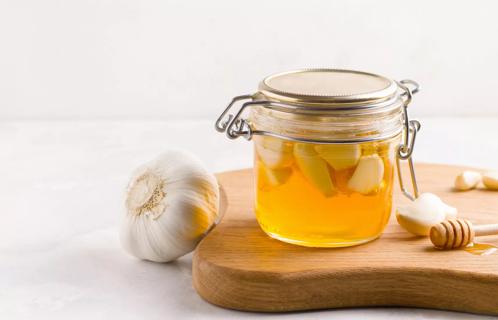
On their own, honey can help soothe a sore throat and garlic has immunity-boosting properties, but you don’t need to go the fermented route
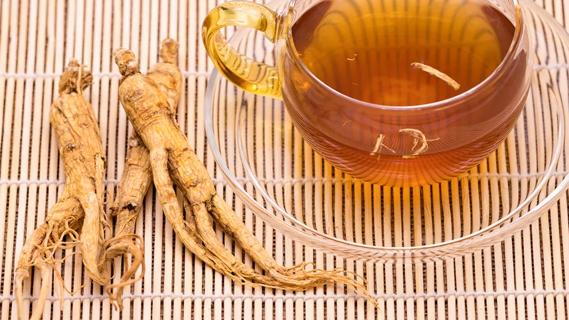
Two types of ginseng work in different ways to help improve energy, immunity and heart health
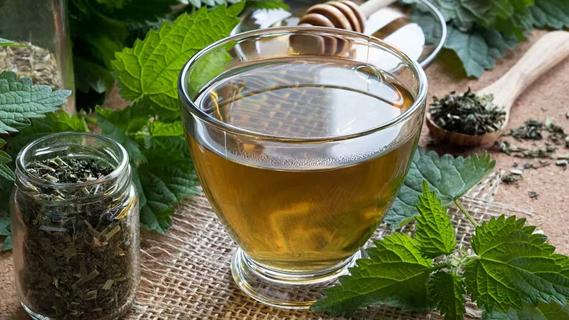
Breastfeeding supplements can be a needless expense at best, and risky at worst

This entrée packs plenty of flavor — and plenty of health benefits
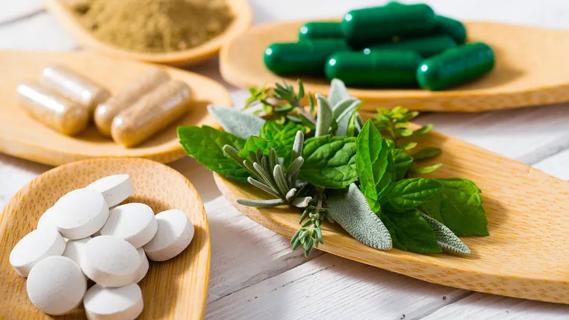
Natural doesn’t mean they’re safe or effective
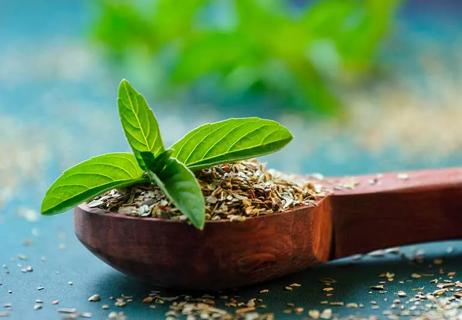
This herb offers different potential benefits from the basil you find in pesto

It’s the flavor of fall, but it’s good to be wise about how you consume it

This herb not only helps prevent chronic diseases, but also elevates every meal

Your metabolism may torch 1,300 to 2,000 calories daily with no activity

A gentle touch in all the right places may help drain your sinuses